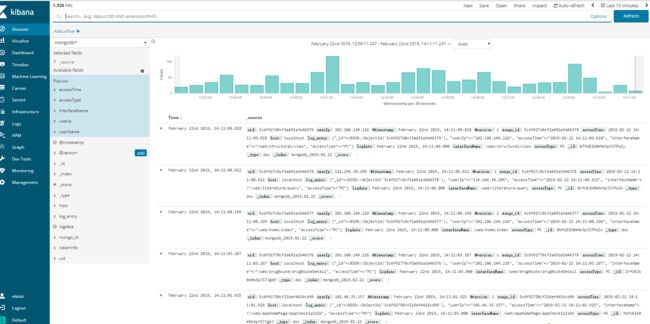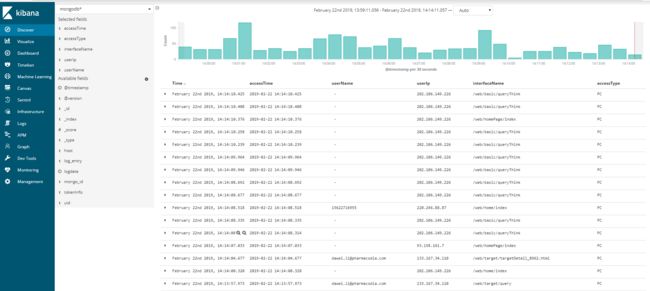- golang中使用mysql事务
彩色代码
Golang编程语言MySQL数据库mysqlgolang数据库
在Go语言中,可以使用第三方库来处理MySQL事务。在示例中,我们将使用database/sql包与github.com/go-sql-driver/mysql驱动程序来连接和执行MySQL数据库操作。首先,确保你已经安装了相应的依赖库。你可以使用以下命令来安装它们:goget-udatabase/sqlgoget-ugithub.com/go-sql-driver/mysql接下来,我们将演示一
- js触发onclick事件获取文本框中的值value
吾与谁归in
Web前端jsjavascripthtml5
1.首先我们创建一到两个文本框,使用标签用户名:密码:2.接着我们创建script代码,创建函数获取文本框中的值,获取值是通过文本框的id获取的,使用到了标签/**创建函数*/functiononclickFun(){/*通过id获取元素*/varuser=document.getElementById("name")/*警示窗口*/alert("你好【"+user.value+"】,欢迎进入系统
- 微信小程序云开发的sql语法 where `$and` 运算符怎么用?踩坑总结!
代码简单说
2025开发必备微信小程序sql小程序where微信小程序and
微信小程序云开发$and组合查询时间戳转换**最近在小程序云开发里用$and组合查询,结果直接翻车,明明条件写对了,却总是查不出数据,要么就是报错,真是要被折腾疯了,官方文档也没给完整示例,最终折腾了半天,终于找到正确用法,现在分享出来,避免大家踩坑1.$and查询失败的真正原因在云开发数据库查询时,如果你的$and组合条件查不出数据,大概率是因为数据类型不匹配,特别是在时间筛选时,很多人会写成这
- PySpark实现导出两个包含多个Parquet数据文件的S3目录里的对应值的差异值分析
weixin_30777913
pythonspark数据分析云计算
编写PySpark代码实现从一个包含多个Parquet数据文件的AmazonS3目录的dataframe数据里取两个维度字段,一个度量字段的数据,根据这两个维度字段的数据分组统计,计算度量字段的数据的分组总计值,得到一个包含两个维度字段和度量字段的分组总计值字段的dataframe,再从另一个包含多个Parquet数据文件的S3目录的dataframe数据里取两个维度字段,一个度量字段的数据组成一
- 我的投资组合网站:打造个性化的在线投资展示平台
Tranyn.X
本文还有配套的精品资源,点击获取简介:本文介绍如何创建和设计一个在线平台,用于展示个人或专业投资者的投资策略、历史表现和投资理念。网站的构建涉及网页布局、响应式设计、CSS样式控制、内容管理、数据分析、SEO优化、安全性、用户体验、个性化和社交媒体整合等多个方面,确保网站既具有吸引力又能够有效地传达投资者的专业形象和投资成就。1.投资组合网站构建与网页布局设计网站构建的初步规划在当今数字化时代,构
- Golang实现一个事务型内存数据库
qingwave
Code数据库golangredis
内存数据库经我们经常用到,例如Redis,那么如何从零实现一个内存数据库呢,本文旨在介绍如何使用Golang编写一个KV内存数据库MossDB。特性MossDB是一个纯Golang编写、可嵌入的、键值型内存数据库,包含以下特性可持久化,类似RedisAOF(AppendonlyLog)支持事务支持近实时的TTL(TimetoLive),可以实现毫秒级的过期删除前缀搜索Watch接口,可以监听某个键
- 2023银行高管变动名单
_依旧_
行业资讯业界资讯
数据源自:2023年国家金融监督管理总局银行类任职资格批复时间银行名称高层职位姓名简介2023-12-12工商银行高级业务总监田枫林1967年10月出生,华中农业大学经济学硕士、芝加哥大学工商管理硕士,高级经济师。现任工行总行公司金融业务部总经理兼投资银行部总经理。1992年7月,加入工行;2007年5月,任新加坡分行副总经理;2010年4月,任工银马来西亚执行董事、总经理;2013年10月,任工
- 深度学习训练中GPU内存管理
@Mr_LiuYang
遇到过的问题内存管理内存溢出outofmemoryGPU内存
文章目录概述常见问题1、设备选择和数据迁移2、显存监控函数3、显存释放函数4、自适应batchsize调节5、梯度累积概述在深度学习模型训练中,主流GPU显存通常为8GB~80GB,内存不足会导致训练中断或BatchSize受限,GPU内存管理是优化性能和避免OutOfMemoryError的关键挑战。本博客简介PyTorch中GPU内存管理的核心函数、用法和实战技巧,帮助开发者高效利用显存资源。
- 家居巨头的觉醒,永洪科技为林氏家居开启一站式智慧决策
永洪科技
科技大数据人工智能数据分析数据可视化报表
在现代企业经营中,数据不仅是资产,更是决策的指南针。永洪科技与林氏家居的合作,是共同开发了一个企业级的一站式大数据分析平台。在合作多年的积累下,已逐步成为家居行业数字化转型的代表性案例。这不仅是两家企业间的合作,更是对于如何有效整合企业内部数据资产,支持各领域业务分析的一次深度实践。以下,我们将深入探讨该项目的每个关键阶段,展示永洪科技的专业能力和对潜在客户的价值承诺。广东林氏家居股份有限公司,创
- 65%的家庭有人“啃老”,数据解读国内版巨婴是如何炼成的?
永洪科技
大数据啃老单身房价
近日,韩国“30-39岁的未婚人口中有54.8%变成啃老族;40-44岁的未婚人口中有44.1%变成啃老族”的数据在网上引发热议。而反观国内,2020年数据显示,中国的啃老族已经占据了中国超过60%的家庭,30%的年轻人靠“啃老”过活,65%以上的家庭存在“啃老”方面的问题。对此,很多80、90后纷纷表示不服。网友调侃:贵族的啃老叫继承家业,到了穷人就成了啃老了。其实,啃老现象在各国都存在,是全人
- DeepSeek与剪映短视频创作指南
meisongqing
人工智能DeepSeek剪映
DeepSeek(深度求索)作为一家专注实现AGI的中国公司,其技术可能涉及AI文本生成、图像处理等领域,结合剪映的智能剪辑功能,可以大幅提升短视频创作效率。以下是结合两者优势的详细创作步骤:一、创意策划阶段AI灵感激发使用DeepSeek的AI文本生成功能,输入关键词(如"美食教程"、"科技科普")获取创意方向生成10-20个标题备选(示例Prompt:"生成10个吸引年轻人的美妆短视频标题")
- 【C语言】结构体篇
熬夜超级玩家
C语言c语言算法开发语言
目录结构体的定义结构体变量的声明和初始化声明结构体变量初始化结构体变量访问结构体成员结构体数组结构体指针结构体嵌套结构体作为函数参数值传递指针传递结构体的内存对齐位域结构体的定义结构体是一种自定义的数据类型,它把不同类型的数据组合成一个整体,方便管理和操作相关的数据。在定义结构体时,使用struct关键字,后面跟着结构体的名称,再用花括号{}包含结构体的成员列表,每个成员由数据类型和成员名组成,成
- flink-cdc实时增量同步mysql数据到elasticsearch
大数据技术派
#Flinkelasticsearchflinkmysql
什么是CDC?CDC是(ChangeDataCapture变更数据获取)的简称。核心思想是,监测并捕获数据库的变动(包括数据或数据表的插入INSERT、更新UPDATE、删除DELETE等),将这些变更按发生的顺序完整记录下来,写入到消息中间件中以供其他服务进行订阅及消费。1.环境准备mysqlelasticsearchflinkonyarn说明:如果没有安装hadoop,那么可以不用yarn,直
- 中国团体保险行业发展规模及投资发展趋向研究报告2021-2027年
Le9420
电子商务
第1章:中国团体保险行业发展综述1.1团体保险行业定义及特点1.1.1团体保险行业的定义1.1.2团体保险行业产品/业务特点(1)团体保险与个人保险(2)团体保险与社会统筹保险1.2团体保险行业统计标准1.2.1团体保险行业统计口径1.2.2团体保险行业统计方法1.2.3团体保险行业数据种类1.2.4团体保险行业研究范围(1)团体人寿保险(2)团体健康保险(3)团体意外伤害保险第2章:美国团体健康
- MySQL保姆级教程(SQL语法基础篇)从小白到高手的进阶指南,收藏这一篇就够了
网安导师小李
网络安全编程程序员mysqlsqladb安全web安全网络自动化
本章节精心构构造SQL语法学习之旅的基石,旨在从基础出发,逐步深入,全面解析SQL语法规则并辅以丰富实例。通过这一篇章,您将循序渐进地掌握MySQL的核心语法,开启数据库操作的新境界。1:SQL语言概述SQL(StructuredQueryLanguage),简称SQL。结构化查询语言包含6个部分:类型释义范例数据查询语言DQL:DataQueryLanguage如SELECT数据操作语言DML:
- Golang后端学习笔记 — 6. Golang操作数据库事务的方法
宝码
Golang后端学习笔记golang数据库事务postgresql
之前,学习了对数据库的每个表执行CRUD操作。真实的场景中,我们经常需要执行一个事务,它组合了多个表的相关操作。本节学习如何在Golang中实现它。在开始之前,先聊一下事务。什么是数据库事务?它是一个单一的工作单元,通常由多个表操作组成。比如:在我们的小银行项目中,我们要从张三的账户中向李四的账户中转账10元。该交易就包括5个操作,涉及到accounts表、entries表和transfers表:
- 全网精简版js数据结构——排序
..儒
数据结构jsjavascript数据结构前端
冒泡排序functionBubbleSort(){const{length}=arrayfor(leti=0;iarr[j+1]){swap(arr,j,j+1)}}}console.log(arry);}functionswap(arry,a,b){consttemp=arry[a]arry[a]=arry[b]arry[b]=temp//或者用[arry[b],arry[a]]=[arry[a
- 对象的介绍及使用
..儒
javascript前端开发语言
对象简介1.对象是什么?对象是一种数据类型无序的数据的集合2.对象有什么特点?无序的数据的集合可以详细的描述描述某个事物对象的使用:用它保存多个数据1.对象声明语法let对象名={} let对象名=newObject()例如://声明了一个person的对象letperson={}实际开发中,我们多用花括号。{}是对象字面量属性数据描述性的信息称为属性,如人的姓名、身高、年龄、性别等,一般是名词性
- 数组 + 函数
..儒
数据结构javascript前端
数组1.声明语法let数组名=[数据1,数据2,...,数据n]letarr=newArray[数据1,数据2,..数据]例letnames=['小明',‘小刚',‘小红',‘小丽',‘小米']数组是按顺序保存,所以每个数据都有自己的编号计算机中的编号从0开始,所以小明的编号为0,小刚编号为1,以此类推在数组中,数据的编号也叫索引或下标数组可以存储任意类型的数据2,数组的基本使用一些术语:元素:数
- JS: 类型转换 + 运算符 + 循环
..儒
javascript开发语言ecmascript
类型转换一,为什么需要类型转换JavaScript是弱数据类型:JavaScript也不知道变量到底属于那种数据类型,只有赋值了才清楚。坑:使用表单、prompt获取过来的数据默认是字符串类型的,此时就不能直接简单的进行加法运算。console.log('1000e'+‘2000')//输出结果100002000此时需要转换变量的数据类型。通俗来说,就是把一种数据类型的变量转换成我们需要的数据类型
- RoboVQA:机器人多模态长范围推理
三谷秋水
计算机视觉智能体大模型机器人人工智能机器学习计算机视觉深度学习语言模型
23年11月来自GoogleDeepmind的论文“RoboVQA:MultimodalLong-HorizonReasoningforRobotics”。本文提出一种可扩展、自下而上且本质多样化的数据收集方案,该方案可用于长期和中期的高级推理,与传统的狭窄自上而下的逐步收集相比,其吞吐量提高2.2倍。通过在3栋办公楼内执行任何用户请求并使用多种具身(机器人、人类、带抓取工具的人类)来收集真实数据
- 【C#实现手写Ollama服务交互,实现本地模型对话】
吾与谁归in
C#学习WPFc#OllamaDeepseek本地模型
前言C#手写Ollama服务交互,实现本地模型对话最近使用C#调用OllamaSharpe库实现Ollama本地对话,然后思考着能否自己实现这个功能。经过一番查找,和查看OllamaSharpe源码发现确实可以。其实就是开启Ollama服务后,发送HTTP请求,获取返回结果以及一些数据处理。基本流程1、启动Ollama服务进程。2、创建HttpClient对象。3、创建请求体(参数:模型名称、提示
- 深度学习PyTorch之数据加载DataLoader
@Mr_LiuYang
计算机视觉基础深度学习pytorch人工智能
深度学习pytorch之简单方法自定义9类卷积即插即用文章目录数据加载基础架构1、Dataset类详解2、DataLoader核心参数解析3、数据增强数据加载基础架构核心类关系图torch.utils.data├──Dataset(抽象基类)├──DataLoader(数据加载器)├──Sampler(采样策略)├──BatchSampler(批量采样)└──IterableDataset(流式数
- Web端测试时,接口返回200,页面有没显示,可能时什么原因?
海姐软件测试
测试工具面试职场和发展
需从系统架构、前后端交互、测试方法三个维度展开分析,结合具体场景给出可落地的排查方案:一、核心原因分析(按优先级排序)前端渲染异常JS脚本执行错误(如语法错误导致页面渲染中断)DOM元素未正确加载(XHR异步请求未完成时触发渲染)CSS样式冲突(display:none/visibility:hidden导致元素不可见)数据解析错误接口返回字段缺失(如缺少关键展示字段id)数据格式不符合预期(如字
- 接口测试中遇到的最大的困难是什么?Java接口测试中用到的框架有哪些?
海姐软件测试
接口测试测试工具
接口测试中的最大困难环境依赖与数据准备接口测试常依赖外部服务或数据库,测试环境不稳定(如第三方接口延迟)会导致测试结果不可靠。解决方案:使用Mock技术(如Mockito)模拟外部依赖,或通过Docker容器化测试环境,确保数据隔离。参数与逻辑复杂度复杂接口可能涉及多参数组合、加密签名(如Token、OAuth)或动态参数(如时间戳),手工构造请求容易出错。示例:电商接口需同时验证商品库存、用户优
- 模型上下文协议(MCP):构建 AI 与数据交互的新范式
xxgshxs
人工智能chatgptprompt文心一言llamacopilot
引言在人工智能领域,大型语言模型(LLMs)的应用正从通用问答向复杂任务执行演进,但数据孤岛、工具集成碎片化及隐私安全等问题制约了其潜力。模型上下文协议(ModelContextProtocol,MCP)作为Anthropic提出的开放标准,旨在通过标准化接口连接AI应用与异构数据源及工具,重塑AI开发范式。本文从技术架构、核心功能、应用场景等维度解析MCP的设计逻辑与实践价值。一、核心概念与设计
- Hive在大数据集群下的部署
正在绘制中
大数据大数据hive
hive安装1)把apache-hive-3.1.3-bin.tar.gz上传到Linux的/opt/software目录下2)解压apache-hive-3.1.3-bin.tar.gz到/opt/module/目录下面tar-zxvf/opt/software/apache-hive-3.1.3-bin.tar.gz-C/opt/module/3)修改apache-hive-3.1.3-bin
- 搭建分布式Hive集群
逸曦玥泱
大数据运维分布式hivehadoop
title:搭建分布式Hive集群date:2024-11-2923:39:00categories:-服务器tags:-Hive-大数据搭建分布式Hive集群本次实验环境:Centos7-2009、Hadoop-3.1.4、JDK8、Zookeeper-3.6.3、Mysql-5.7.38、Hive-3.1.2功能规划方案一(本地运行模式)Master主节点(Mysql+Hive)192.168
- 黑马程序员-接口测试-四天学习接口测试-第二天-接口用例设计,测试点,功能测试,安全测试,性能测试,单接口测试,业务场景测试用例,postman简介,安装
学习记录wanxiaowan
postman学习功能测试
今日学习目标分析接口文档,设计编写接口测试用例使用Postman设置请求方法、URL、请求头、请求体,向接口发送http请求,并查看响应数据分析接口文档,设计接口测试用例使用postman设置请求方法,url请求头,请求体,查看响应数据3接口用例设计为什么写防止测试点漏测。条理清晰方便分配工作,评估工作量和时间面试时使用!接口测试的测试点测试点称之为测试维度。5功能测试单接口功能:手工测试中的单个
- Hadoop、Spark和 Hive 的详细关系
夜行容忍
hadoopsparkhive
Hadoop、Spark和Hive的详细关系1.ApacheHadoopHadoop是一个开源框架,用于分布式存储和处理大规模数据集。核心组件:HDFS(HadoopDistributedFileSystem):分布式文件系统,提供高吞吐量的数据访问。YARN(YetAnotherResourceNegotiator):集群资源管理和作业调度系统。MapReduce:基于YARN的并行处理框架,用
- Java实现的基于模板的网页结构化信息精准抽取组件:HtmlExtractor
yangshangchuan
信息抽取HtmlExtractor精准抽取信息采集
HtmlExtractor是一个Java实现的基于模板的网页结构化信息精准抽取组件,本身并不包含爬虫功能,但可被爬虫或其他程序调用以便更精准地对网页结构化信息进行抽取。
HtmlExtractor是为大规模分布式环境设计的,采用主从架构,主节点负责维护抽取规则,从节点向主节点请求抽取规则,当抽取规则发生变化,主节点主动通知从节点,从而能实现抽取规则变化之后的实时动态生效。
如
- java编程思想 -- 多态
百合不是茶
java多态详解
一: 向上转型和向下转型
面向对象中的转型只会发生在有继承关系的子类和父类中(接口的实现也包括在这里)。父类:人 子类:男人向上转型: Person p = new Man() ; //向上转型不需要强制类型转化向下转型: Man man =
- [自动数据处理]稳扎稳打,逐步形成自有ADP系统体系
comsci
dp
对于国内的IT行业来讲,虽然我们已经有了"两弹一星",在局部领域形成了自己独有的技术特征,并初步摆脱了国外的控制...但是前面的路还很长....
首先是我们的自动数据处理系统还无法处理很多高级工程...中等规模的拓扑分析系统也没有完成,更加复杂的
- storm 自定义 日志文件
商人shang
stormclusterlogback
Storm中的日志级级别默认为INFO,并且,日志文件是根据worker号来进行区分的,这样,同一个log文件中的信息不一定是一个业务的,这样就会有以下两个需求出现:
1. 想要进行一些调试信息的输出
2. 调试信息或者业务日志信息想要输出到一些固定的文件中
不要怕,不要烦恼,其实Storm已经提供了这样的支持,可以通过自定义logback 下的 cluster.xml 来输
- Extjs3 SpringMVC使用 @RequestBody 标签问题记录
21jhf
springMVC使用 @RequestBody(required = false) UserVO userInfo
传递json对象数据,往往会出现http 415,400,500等错误,总结一下需要使用ajax提交json数据才行,ajax提交使用proxy,参数为jsonData,不能为params;另外,需要设置Content-type属性为json,代码如下:
(由于使用了父类aaa
- 一些排错方法
文强chu
方法
1、java.lang.IllegalStateException: Class invariant violation
at org.apache.log4j.LogManager.getLoggerRepository(LogManager.java:199)at org.apache.log4j.LogManager.getLogger(LogManager.java:228)
at o
- Swing中文件恢复我觉得很难
小桔子
swing
我那个草了!老大怎么回事,怎么做项目评估的?只会说相信你可以做的,试一下,有的是时间!
用java开发一个图文处理工具,类似word,任意位置插入、拖动、删除图片以及文本等。文本框、流程图等,数据保存数据库,其余可保存pdf格式。ok,姐姐千辛万苦,
- php 文件操作
aichenglong
PHP读取文件写入文件
1 写入文件
@$fp=fopen("$DOCUMENT_ROOT/order.txt", "ab");
if(!$fp){
echo "open file error" ;
exit;
}
$outputstring="date:"." \t tire:".$tire."
- MySQL的btree索引和hash索引的区别
AILIKES
数据结构mysql算法
Hash 索引结构的特殊性,其 检索效率非常高,索引的检索可以一次定位,不像B-Tree 索引需要从根节点到枝节点,最后才能访问到页节点这样多次的IO访问,所以 Hash 索引的查询效率要远高于 B-Tree 索引。
可能很多人又有疑问了,既然 Hash 索引的效率要比 B-Tree 高很多,为什么大家不都用 Hash 索引而还要使用 B-Tree 索引呢
- JAVA的抽象--- 接口 --实现
百合不是茶
抽象 接口 实现接口
//抽象 类 ,方法
//定义一个公共抽象的类 ,并在类中定义一个抽象的方法体
抽象的定义使用abstract
abstract class A 定义一个抽象类 例如:
//定义一个基类
public abstract class A{
//抽象类不能用来实例化,只能用来继承
//
- JS变量作用域实例
bijian1013
作用域
<script>
var scope='hello';
function a(){
console.log(scope); //undefined
var scope='world';
console.log(scope); //world
console.log(b);
- TDD实践(二)
bijian1013
javaTDD
实践题目:分解质因数
Step1:
单元测试:
package com.bijian.study.factor.test;
import java.util.Arrays;
import junit.framework.Assert;
import org.junit.Before;
import org.junit.Test;
import com.bijian.
- [MongoDB学习笔记一]MongoDB主从复制
bit1129
mongodb
MongoDB称为分布式数据库,主要原因是1.基于副本集的数据备份, 2.基于切片的数据扩容。副本集解决数据的读写性能问题,切片解决了MongoDB的数据扩容问题。
事实上,MongoDB提供了主从复制和副本复制两种备份方式,在MongoDB的主从复制和副本复制集群环境中,只有一台作为主服务器,另外一台或者多台服务器作为从服务器。 本文介绍MongoDB的主从复制模式,需要指明
- 【HBase五】Java API操作HBase
bit1129
hbase
import java.io.IOException;
import org.apache.hadoop.conf.Configuration;
import org.apache.hadoop.hbase.HBaseConfiguration;
import org.apache.hadoop.hbase.HColumnDescriptor;
import org.apache.ha
- python调用zabbix api接口实时展示数据
ronin47
zabbix api接口来进行展示。经过思考之后,计划获取如下内容: 1、 获得认证密钥 2、 获取zabbix所有的主机组 3、 获取单个组下的所有主机 4、 获取某个主机下的所有监控项
- jsp取得绝对路径
byalias
绝对路径
在JavaWeb开发中,常使用绝对路径的方式来引入JavaScript和CSS文件,这样可以避免因为目录变动导致引入文件找不到的情况,常用的做法如下:
一、使用${pageContext.request.contextPath}
代码” ${pageContext.request.contextPath}”的作用是取出部署的应用程序名,这样不管如何部署,所用路径都是正确的。
- Java定时任务调度:用ExecutorService取代Timer
bylijinnan
java
《Java并发编程实战》一书提到的用ExecutorService取代Java Timer有几个理由,我认为其中最重要的理由是:
如果TimerTask抛出未检查的异常,Timer将会产生无法预料的行为。Timer线程并不捕获异常,所以 TimerTask抛出的未检查的异常会终止timer线程。这种情况下,Timer也不会再重新恢复线程的执行了;它错误的认为整个Timer都被取消了。此时,已经被
- SQL 优化原则
chicony
sql
一、问题的提出
在应用系统开发初期,由于开发数据库数据比较少,对于查询SQL语句,复杂视图的的编写等体会不出SQL语句各种写法的性能优劣,但是如果将应用系统提交实际应用后,随着数据库中数据的增加,系统的响应速度就成为目前系统需要解决的最主要的问题之一。系统优化中一个很重要的方面就是SQL语句的优化。对于海量数据,劣质SQL语句和优质SQL语句之间的速度差别可以达到上百倍,可见对于一个系统
- java 线程弹球小游戏
CrazyMizzz
java游戏
最近java学到线程,于是做了一个线程弹球的小游戏,不过还没完善
这里是提纲
1.线程弹球游戏实现
1.实现界面需要使用哪些API类
JFrame
JPanel
JButton
FlowLayout
Graphics2D
Thread
Color
ActionListener
ActionEvent
MouseListener
Mouse
- hadoop jps出现process information unavailable提示解决办法
daizj
hadoopjps
hadoop jps出现process information unavailable提示解决办法
jps时出现如下信息:
3019 -- process information unavailable3053 -- process information unavailable2985 -- process information unavailable2917 --
- PHP图片水印缩放类实现
dcj3sjt126com
PHP
<?php
class Image{
private $path;
function __construct($path='./'){
$this->path=rtrim($path,'/').'/';
}
//水印函数,参数:背景图,水印图,位置,前缀,TMD透明度
public function water($b,$l,$pos
- IOS控件学习:UILabel常用属性与用法
dcj3sjt126com
iosUILabel
参考网站:
http://shijue.me/show_text/521c396a8ddf876566000007
http://www.tuicool.com/articles/zquENb
http://blog.csdn.net/a451493485/article/details/9454695
http://wiki.eoe.cn/page/iOS_pptl_artile_281
- 完全手动建立maven骨架
eksliang
javaeclipseWeb
建一个 JAVA 项目 :
mvn archetype:create
-DgroupId=com.demo
-DartifactId=App
[-Dversion=0.0.1-SNAPSHOT]
[-Dpackaging=jar]
建一个 web 项目 :
mvn archetype:create
-DgroupId=com.demo
-DartifactId=web-a
- 配置清单
gengzg
配置
1、修改grub启动的内核版本
vi /boot/grub/grub.conf
将default 0改为1
拷贝mt7601Usta.ko到/lib文件夹
拷贝RT2870STA.dat到 /etc/Wireless/RT2870STA/文件夹
拷贝wifiscan到bin文件夹,chmod 775 /bin/wifiscan
拷贝wifiget.sh到bin文件夹,chm
- Windows端口被占用处理方法
huqiji
windows
以下文章主要以80端口号为例,如果想知道其他的端口号也可以使用该方法..........................1、在windows下如何查看80端口占用情况?是被哪个进程占用?如何终止等. 这里主要是用到windows下的DOS工具,点击"开始"--"运行",输入&
- 开源ckplayer 网页播放器, 跨平台(html5, mobile),flv, f4v, mp4, rtmp协议. webm, ogg, m3u8 !
天梯梦
mobile
CKplayer,其全称为超酷flv播放器,它是一款用于网页上播放视频的软件,支持的格式有:http协议上的flv,f4v,mp4格式,同时支持rtmp视频流格 式播放,此播放器的特点在于用户可以自己定义播放器的风格,诸如播放/暂停按钮,静音按钮,全屏按钮都是以外部图片接口形式调用,用户根据自己的需要制作 出播放器风格所需要使用的各个按钮图片然后替换掉原始风格里相应的图片就可以制作出自己的风格了,
- 简单工厂设计模式
hm4123660
java工厂设计模式简单工厂模式
简单工厂模式(Simple Factory Pattern)属于类的创新型模式,又叫静态工厂方法模式。是通过专门定义一个类来负责创建其他类的实例,被创建的实例通常都具有共同的父类。简单工厂模式是由一个工厂对象决定创建出哪一种产品类的实例。简单工厂模式是工厂模式家族中最简单实用的模式,可以理解为是不同工厂模式的一个特殊实现。
- maven笔记
zhb8015
maven
跳过测试阶段:
mvn package -DskipTests
临时性跳过测试代码的编译:
mvn package -Dmaven.test.skip=true
maven.test.skip同时控制maven-compiler-plugin和maven-surefire-plugin两个插件的行为,即跳过编译,又跳过测试。
指定测试类
mvn test
- 非mapreduce生成Hfile,然后导入hbase当中
Stark_Summer
maphbasereduceHfilepath实例
最近一个群友的boss让研究hbase,让hbase的入库速度达到5w+/s,这可愁死了,4台个人电脑组成的集群,多线程入库调了好久,速度也才1w左右,都没有达到理想的那种速度,然后就想到了这种方式,但是网上多是用mapreduce来实现入库,而现在的需求是实时入库,不生成文件了,所以就只能自己用代码实现了,但是网上查了很多资料都没有查到,最后在一个网友的指引下,看了源码,最后找到了生成Hfile
- jsp web tomcat 编码问题
王新春
tomcatjsppageEncode
今天配置jsp项目在tomcat上,windows上正常,而linux上显示乱码,最后定位原因为tomcat 的server.xml 文件的配置,添加 URIEncoding 属性:
<Connector port="8080" protocol="HTTP/1.1"
connectionTi

